Huachao Festival—A Holiday Revived Thanks to Hanfu

The Huachao Festival, also called the “Flower God Festival,” is the birthday of all flowers. It was super popular across most of China back in the day, held on the second day of the second lunar month, though some places celebrated it on the twelfth or fifteenth. At this time, the earth wakes up, everything comes back to life, and flowers either bud, bloom, or burst into full glory—perfect for friends to team up and enjoy outings or spring hikes.
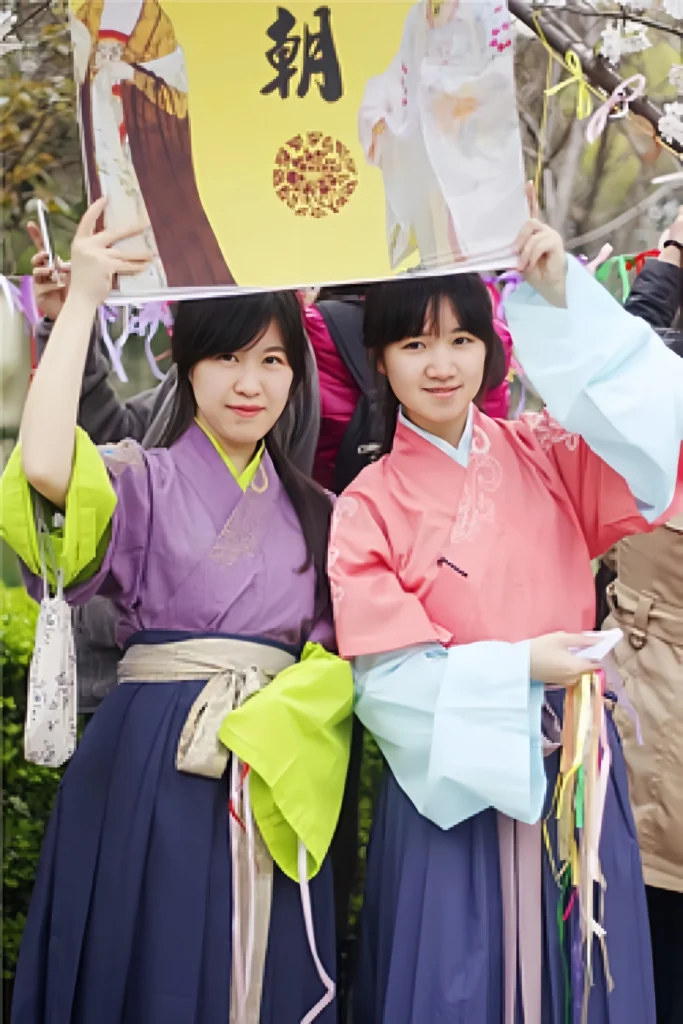
I first heard about the Huachao Festival in junior high while reading an ancient text, Manjing Youji: “In the cold Yan region, after the Huachao Festival, the chill still bites. Freezing winds kick up, sending sand and pebbles flying. Stuck indoors, unable to go out, I’d brave the wind for a run, only to turn back after a hundred steps. On the 22nd, the weather softened, so I joined a few friends, heading east to Manjing.”
Back then, I was amazed—why did such a cool festival fade away? Sure, we still hear about a few surviving ones like the Dragon Boat or Double Ninth, but the Huachao Festival was practically unknown. Nowadays, aside from Spring Festival, other traditional holidays get less and less fanfare, let alone one as obscure as this.
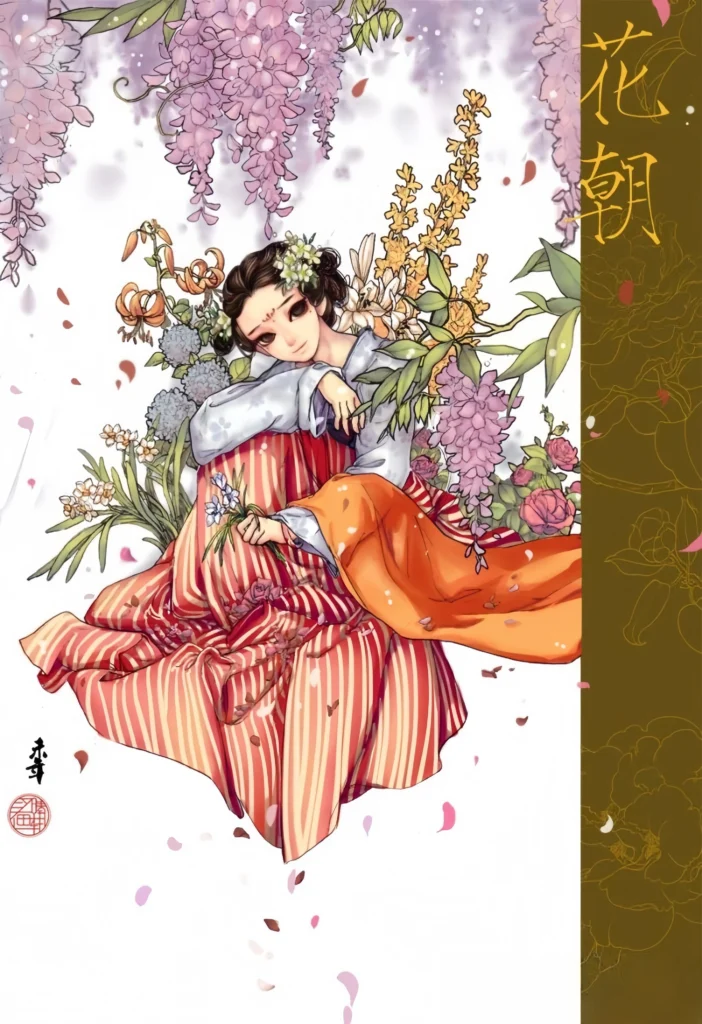
It’s the opposite with foreign holidays—they’re getting bigger every year. Valentine’s Day, Christmas Eve, Christmas—shops hype them up, and everyone joins the party. Loving foreign festivities is fine, but letting traditional ones fade shows a lack of cultural confidence, or at least some serious energy lag. There’s this weird mindset that foreign stuff is cool and classy, while Chinese traditions feel old-fashioned.
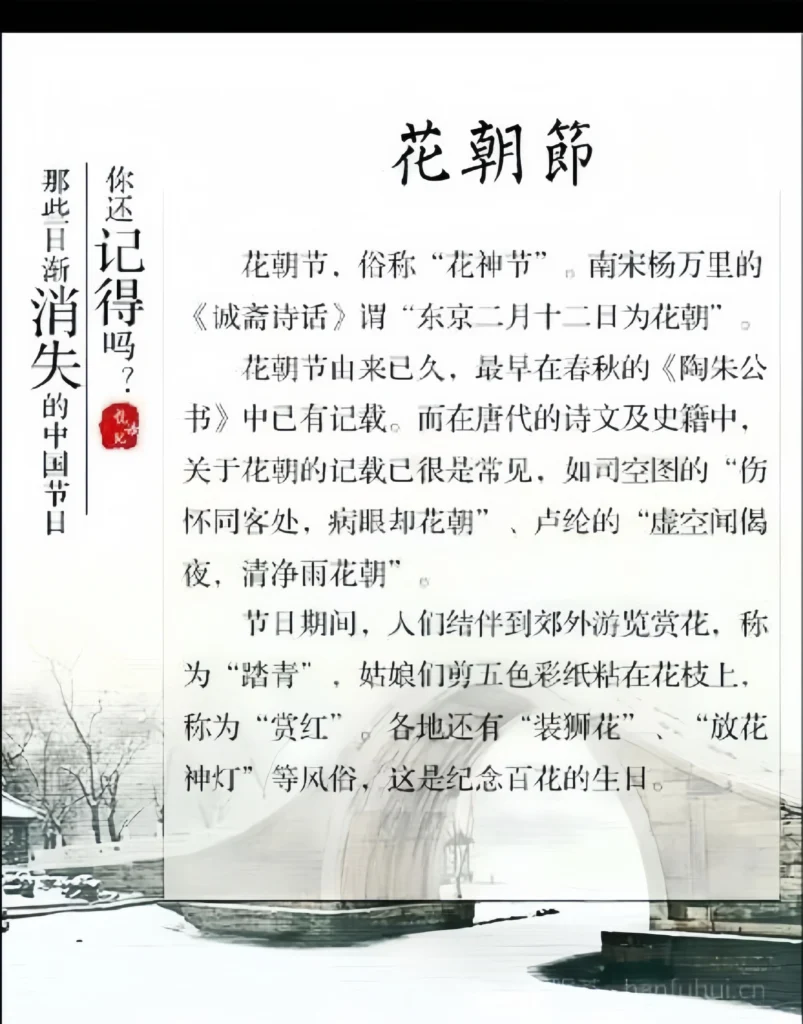
Unlike most people’s cold shoulder to traditional holidays, a group of young folks is bringing back our fading ones—including the centuries-lost Huachao Festival. They’re Hanfu lovers, calling each other “Tongpao,” dedicated to reviving Chinese culture. Thanks to their efforts, the Huachao Festival is gaining more attention—truly a holiday reborn through Hanfu.
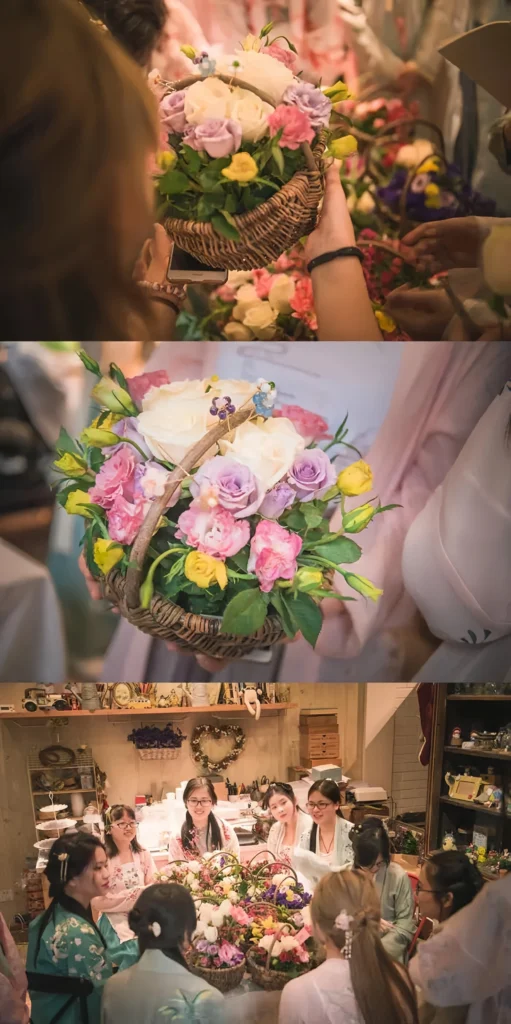
Not many nations celebrate a flower-based festival like China, showing our deep love for flowers. Even our earliest ethnic name, Huaxia, ties to flowers. China’s called “Xia” for its grand rituals and “Hua” for its beautiful attire—“Hua” also means “flower.” Huaxia means a people with flowery, stunning clothes and rich etiquette.
With such deep roots between Hanfu, flowers, and our heritage, the Huachao Festival’s revival through Hanfu feels like a perfect match.

China is a land of flowers, with plenty of records about the Huachao Festival. The earliest, from the Spring and Autumn’s Taozhu Gong Shu, says, “The twelfth of the second month is the birthday of all flowers; no rain means they ripen.” South Song’s Yang Wanli’s Chengzhai Shihua notes, “The twelfth of the second month in Tokyo is the flower festival.” South Song’s Liang Yuandi wrote a Huachao poem: “Flower festival and moonlit nights stir spring hearts—who can bear longing without meeting?” Zhang Zheng’s poem goes, “Early dawn, late spring fades, new rain brings the flower festival.” Tang poet Fang Gan wrote, “Flower festival fog blankets the land, snowy nights reflect the lake.” Clearly, this festival has been with us for ages. If Hanfu helps revive it, keeping this cultural gem alive, I can’t help but say thanks.
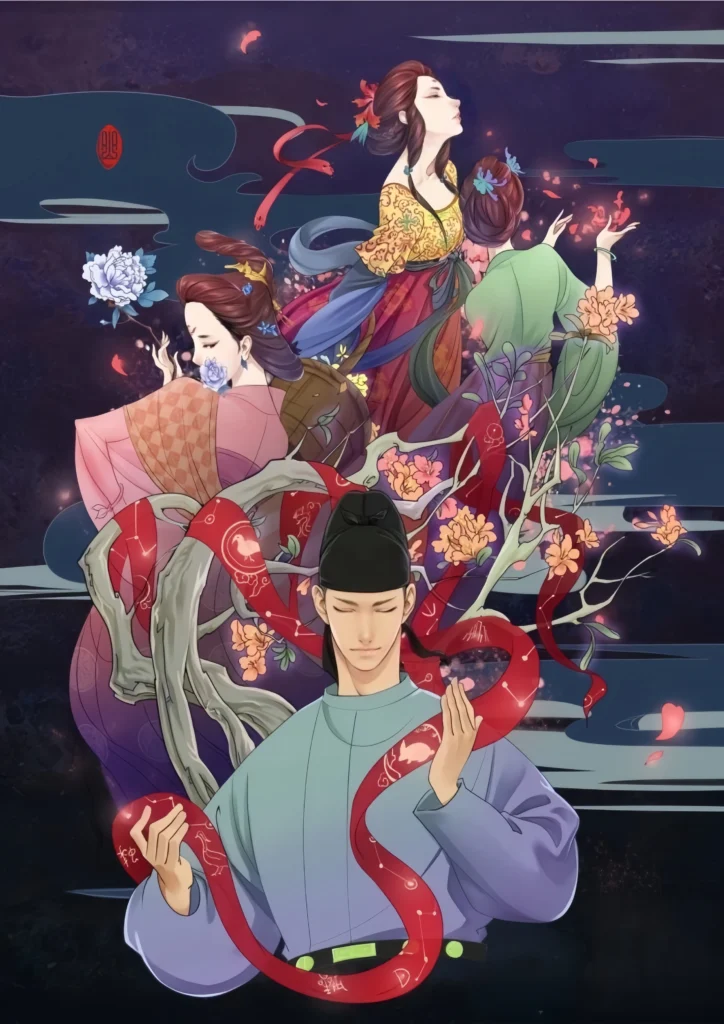
Reviving Chinese civilization is a long, tough road. Let’s trace and explore the “source of Huaxia civilization,” connect with “5,000 years of Huaxia heritage,” and link back to our ancestors.


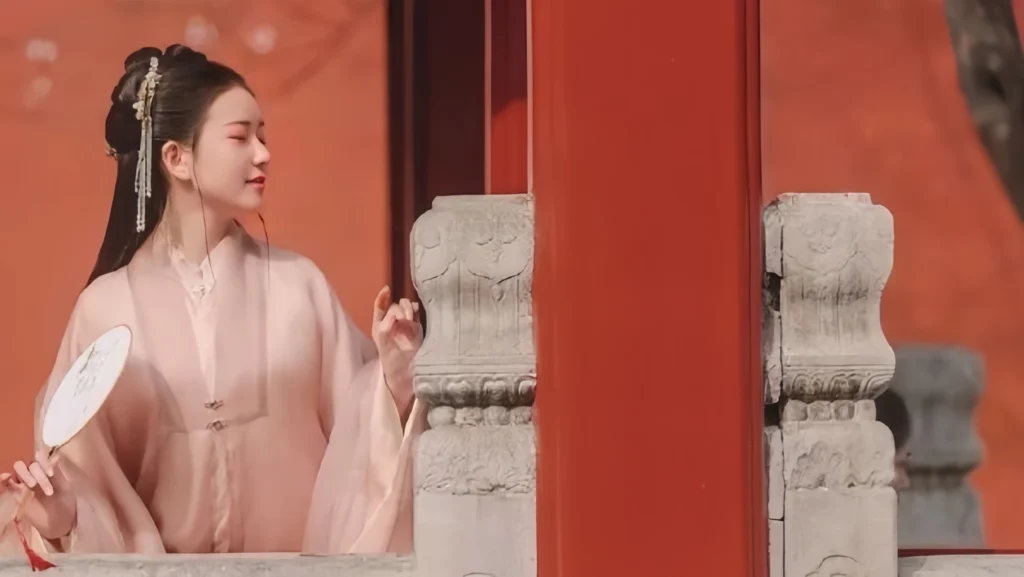

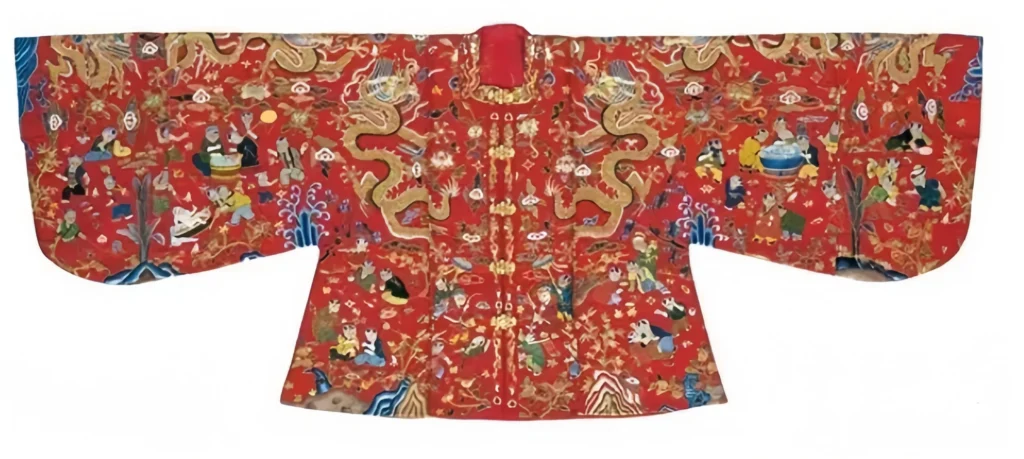
Responses